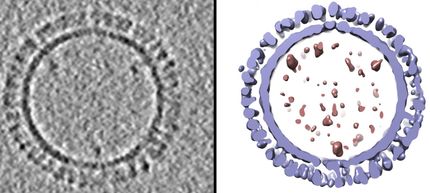PowderMed's PMED Gene Gun named to the Popular Science 'Best of What's New' for 2005
Needle-free Device for DNA Vaccine Drug Delivery Awarded Prestigious Honour in the Personal Health Category; Avian Flu Vaccine First BioDefense Application
Advertisement
PowderMed, an immunotherapeutics company focused on the development and manufacture of DNA-based vaccines for viral diseases and cancer, announced that its Particle Mediated Epidermal Delivery (PMED(TM) ) vaccine delivery device has been selected by the editors of Popular Science as one of this year's top 100 breakthrough technologies. The publication has awarded the PMED device, commonly referred to as the 'Gene Gun', a 2005 Best of What's New (BOWN) award in the Personal Health category. PMED is featured along with other winners in the magazine's December issue.
PowderMed's PMED device employs a proprietary technology platform that delivers gold micro-particles coated with DNA-based vaccine into the immune network of the epidermis, which is impossible to access using a needle and syringe. The targeting of this immune cell rich tissue means that immune responses are seen with very small (microgram) doses of DNA-based vaccine; a 1000-fold less than with intramuscular DNA injection. PowderMed's lead clinical program is a DNA-based prophylactic vaccine to target annual and pandemic influenza as the technology has unique features to deal with the pandemic threat posed by H5N1 or avian flu. The company currently has four clinical and three late stage pre-clinical projects.
The PMED device is a single-use, disposable device powered by high pressure helium. The cassette containing the powdered vaccine is loaded into the body of the device at the end of the manufacturing process. As the powdered vaccine is stable at ambient temperature and the cassette is sealed, PMED can be stored simply and cheaply.
A key difference between direct injection and PMED delivery is the efficiency with which this is done: Direct injection delivers the DNA to extracellular spaces and relies on an inefficient, non-specific uptake of the DNA by neighbouring cells or transport along lymphatic vessels to draining lymph nodes. In contrast, PMED delivers the DNA directly to the intracellular compartment. As a result, PMED delivery uses 1,000-fold less DNA than needle and injection administration, hence the cost per dose for PMED is commercially attractive.
PowderMed has produced an H5N1 vaccine by cloning the H5 gene from the current circulating avian flu strain ('the gene cassette') into the company's proprietary DNA vaccine backbone and the vaccine is now ready for development. Manufacturing and toxicology studies are now in progress, and it is anticipated that this vaccine will enter clinical trials by the middle of 2006.




















































